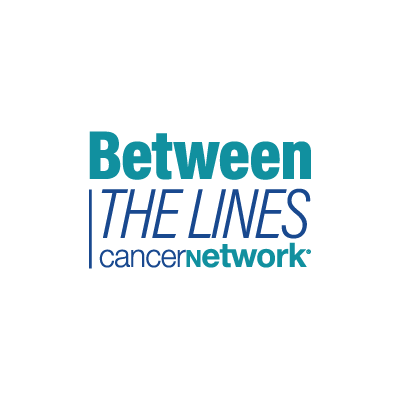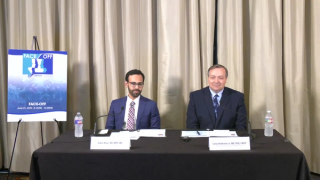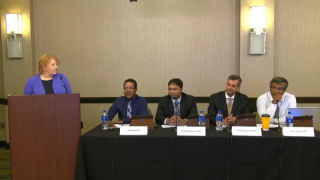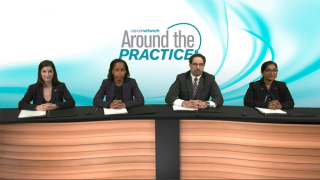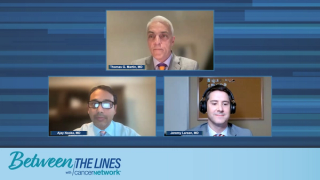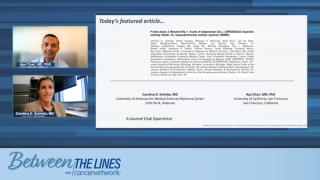
Multiple Myeloma
Latest News
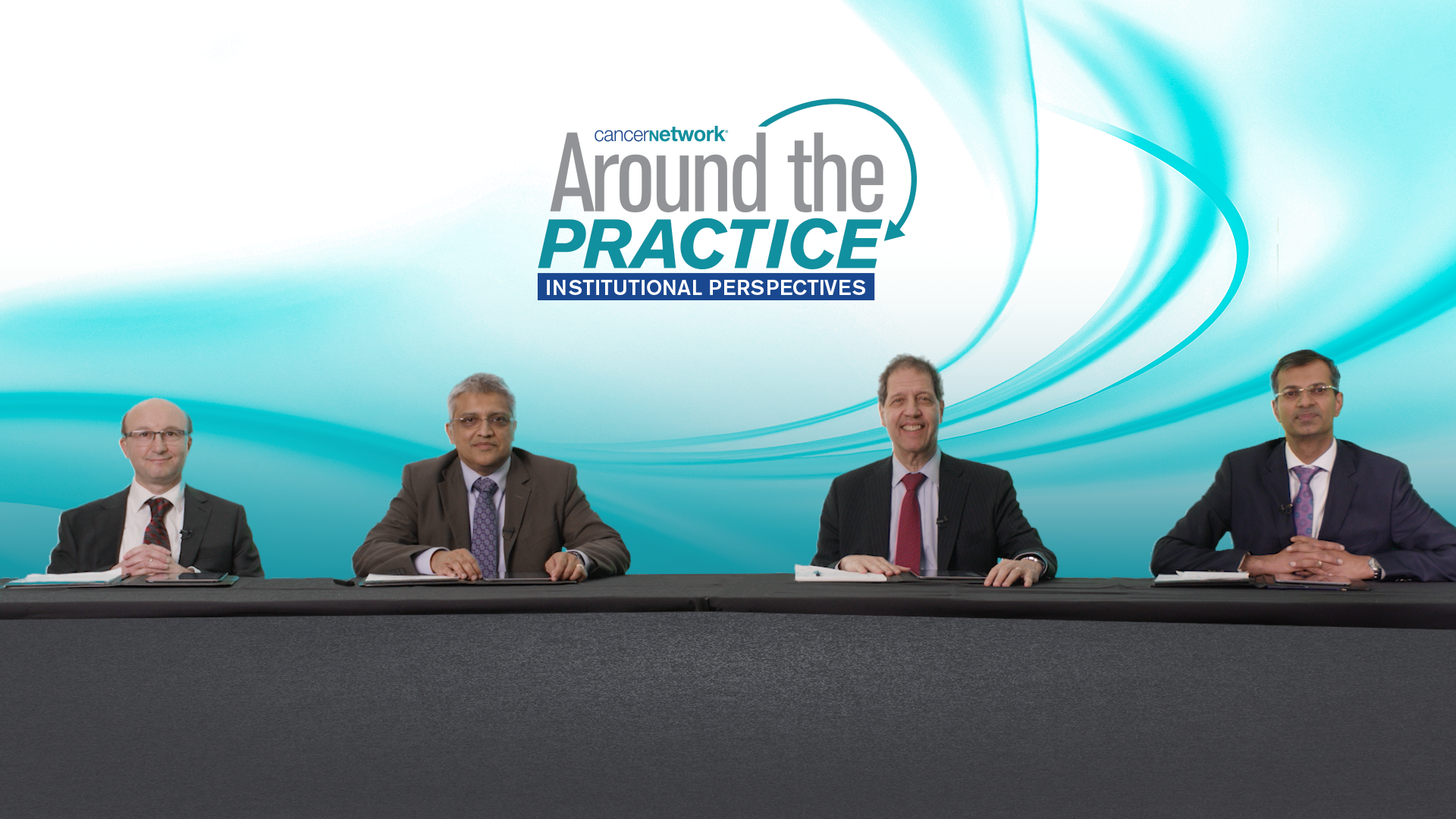
Latest Videos

CME Content
More News
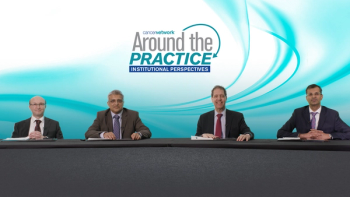
Considerations for assessing eligibility of patients for transplantation for NDMM and how maintenance therapy may be initiated in the post-transplant setting.
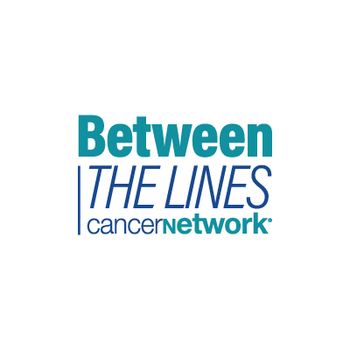
Paul G. Richardson, MD, and Christina Gasparetto, MD, offer insights into the use of proteasome inhibitors in relapsed or refractory multiple myeloma.

Numerous renal and cardiac indices as well as quality-of-life measures were improved with a comprehensive vs routine nursing care model.

A panel of experts provides a discussion on treatments for newly diagnosed transplant-eligible and transplant-ineligible relapsed multiple myeloma, and how recent clinical trial data presented at ASH 2021 can be applied to clinical practice.

Updated results from the phase 3 IKEMA study showed a progression-free survival benefit with the addition of isatuximab to carfilzomib and dexamethasone that was consistent with interim results in patients with relapsed multiple myeloma.
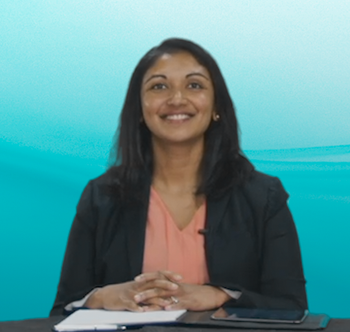
Nisha Joseph, MD, presents the case of a 78-year-old man with transplant-ineligible multiple myeloma and discusses treatment strategy.
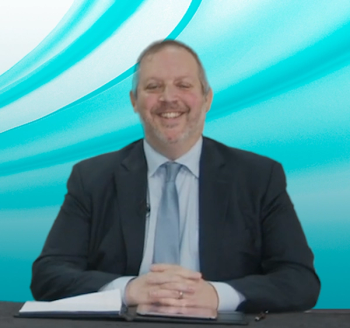
Experts discuss how they define frail and high-risk patients with multiple myeloma and their treatment approaches for these patient populations.

Centering discussion on a patient case of transplant-ineligible newly diagnosed multiple myeloma, experts consider how they would approach workup and management.

Comprehensive insight on optimizing newly diagnosed multiple myeloma management, ranging from response assessment to use of consolidation and maintenance therapy.

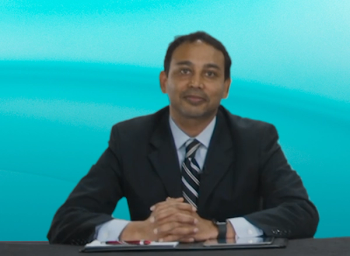
An overview of the study design, efficacy, and safety findings of the MAIA trial.

Dr Nisha Joseph presents the case of a woman with transplant-ineligible multiple myeloma and discusses considerations when choosing frontline treatment regimens.

Shared insight on the GMMG-HD7 study, which utilized a frontline isatuximab-containing quadruplet regimen in patients with newly diagnosed multiple myeloma.

Expert perspectives on frontline daratumumab-containing quadruplet regimens in the context of recent clinical trials in newly diagnosed multiple myeloma.

Drs Ajay Nooka and Jonathan Kaufman discuss maintenance and consolidation treatment strategies for transplant eligible multiple myeloma.

Experts discuss how they select a treatment regimen for a newly diagnosed multiple myeloma patient, and how they measure a successful treatment response.

Minimal residual disease status 3 months and 6 months following autologous stem-cell transplant could be predictive of progression-free survival and overall survival outcomes in multiple myeloma.
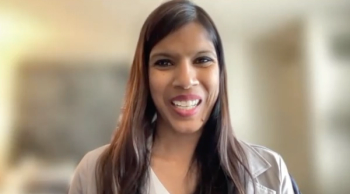
Nina Shah, MD, spoke about her key takeaways from a sub-analysis of the phase 2 KarMMa trial assessing correlates of complete response among those treated with idecabtagene vicleucel in relapsed/refractory multiple myeloma.

Nina Shah, MD, spoke about analyzing correlates of complete response in patients with relapsed/refractory multiple myeloma who were treated with idecabtagene vicleucel.

Investigators have identified an association between the diagnosis and care of older patients with multiple myeloma and substantial financial burden on Medicare.

Response to idecabtagene vicleucel for patients with pretreated multiple myeloma did not appear to be influenced by baseline body mass index.

A review of the study design and results of two clinical trials researching quadruplet therapies for newly diagnosed multiple myeloma presented at ASH 2021.
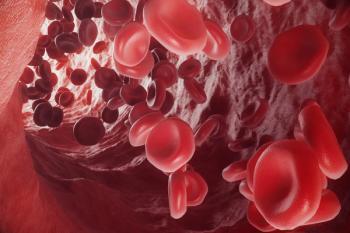
Investigators observed low enrollment of Black patients on CAR T-cell therapy clinical trials that supported FDA decisions in hematologic malignancies, especially in multiple myeloma.
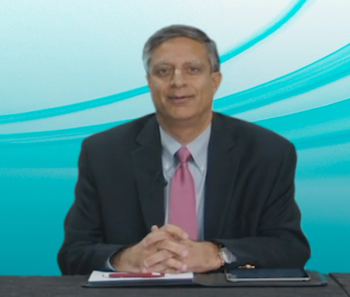
Emory Experts Discuss Multi-Agent Induction Regimens for Transplant-Eligible Newly Diagnosed Myeloma
An overview of the currently available frontline treatment options for transplant-eligible multiple myeloma.

At the 2022 Tandem Meetings, Nina Shah, MD, spoke about key findings from the phase 2 KarMMa trial that used idecabtagene vicleucel in patients with relapsed/refractory multiple myeloma.


